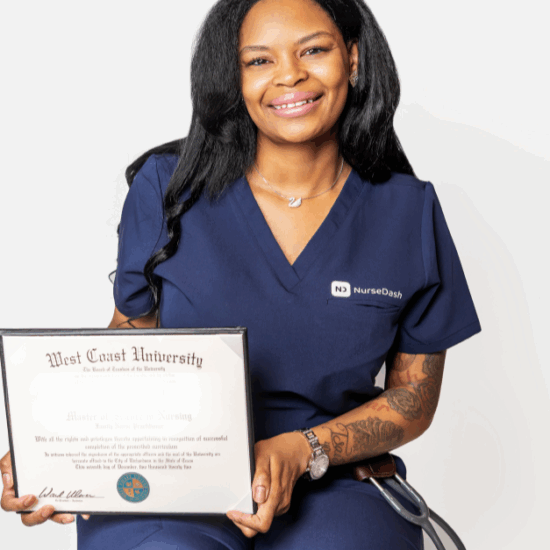3 Things to Look For in What Makes a Good Nurse
When it comes to finding and retaining talented and good nurses, one has to wonder — what makes a good nurse?
You may think of a good nurse as someone that is reliable, trustworthy, and that you can count on to show up for work each and every day. Beyond that, what other qualities is your facility looking for that makes a good nurse?
A good nurse possesses a lot of attributes, but some of the top ones are:
- Communication Skills — You want your nurse to be able to communicate with staff and patients with ease.
- Desire to Learn — With the changes in the healthcare market, a nurse must maintain a strong desire to learn to keep up with new methodologies and practices.
- Flexibility — A nurse knows that their schedules may change when coverage is needed. Being flexible to work different hours or on other floors is a must.
- Empathy — This trait is important when someone is working in a field with such a high level of sensitivity to empathize with the situation at hand.
- Caring — One of the most basic principles in nurses is to just be caring. Without this trait, a nurse could make their patients and co-workers feel uncomfortable.
What Licensing and Credentials Must Nurses Have?
Education and Experience in Nursing
In order to be a practicing nurse, a person must have some level of certification, degree, or diploma.
A new, aspiring student who wants to become an RN and go straight for their Bachelor of Science in Nursing (BSN) degree can expect to finish in as little as three years, but typically four if they are enrolled full-time.
A popular track for nurses is the RN to BSN program. This is where a person can begin practice in the field after becoming an RN — perhaps after completing their associate-level degree (ADN). They can then continue to work and gain experience while continuing their education to complete their BSN. This type of program typically takes about two years.
A nurse may choose to do this if they are thinking of possibly completing an advanced degree later on in their careers.
A person who is looking to switch from another field that already has a bachelor’s degree might find an accelerated program to complete as well.
Certifications and Licensing in Nursing
Other diplomas and certifications are available as well — such as those wanting to specialize in an area or those who want to work as a Licensed Practical Nurse (LPN/LVN), State Tested Nurse Assistant (STNA), or Certified Nurse Assistant (CNA).
Each of these programs ends with a test to become certified.
LPN/LVN to RN and LPN/LVN to BSN programs are available to those who want to continue their education and advance their careers in nursing.
What is a Nurse’s Drive?
Think of the best experiences you have had in your life while visiting somewhere new. Did someone or everyone make you feel welcome? Did they seem to care about you and all of your needs? How do you translate what you learn about someone in an interview to determine if they’re a fit for your facility?
Everyone wants to have a highly motivated employee in hopes to build a driven staff.
How do you know if a nurse is interested in working at your facility? During the interview with a potential hire is when you can learn most about what they are looking for and if they are a good fit for the job. Things to consider asking are:
- What motivates you?
- Are you looking for a full-time or side job to make money?
- How do you see yourself advancing your career?
- Are you trying to switch specialties?
Find out if your facility can offer something that they’re looking for to keep them happy and motivated and working for you for the long-term.
What NurseDash Can Do for Your Facility
NurseDash connects your facility with a nurse that is interested in working a particular shift. From there, you can find out the clinician’s information to see if they are a good match for what you’re asking for.
If overtime issues are costing your facility money and hiring another full-time employee is out of the question then let NurseDash help you bring in someone on an as-needed basis to fulfill this need. Having the ability to bring in outside help instead of paying current nurses overtime to help cover the gaps in shifts with vacations or personal time is a way to save money.
As the number of people needing care grows with an aging population, more nurses will be needed. This also includes STNAs and CNAs. With STNAs and CNAs, you can add more staffing at a lesser cost than what a full-time RN may cost you if the need and fit are there.
NurseDash allows your to view the rating, education, and experience of each potential hire before bringing them in for a shift. To learn more about how to get started and connect with clinician’s today, visit the NurseDash website.






